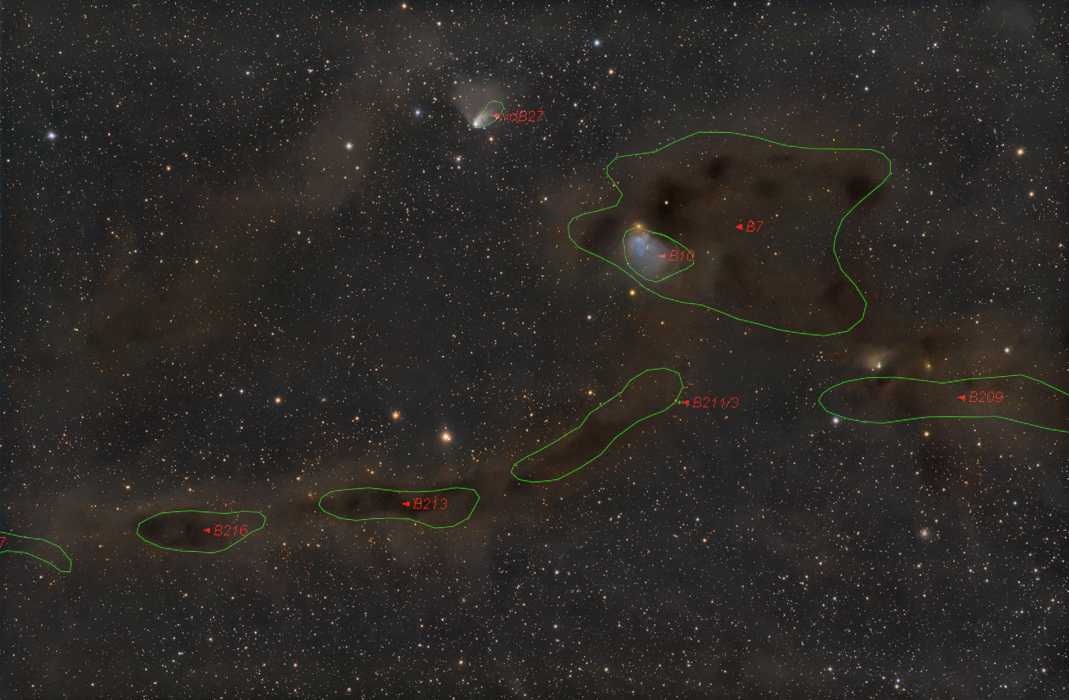Barnard 7 and Surrounding Nebulae
Characteristics:
RA (J2000): 04h 19m 31s
Dec (J2000): 27 degrees 45' 05"
Position Angle (Pinpoint): minus 23 degrees
Description:
The above image was taken on two separate nights
and shows several dark nebulae originally described and photographed by
Edward Emerson Barnard.
In addition to Barnard 7 (B7), other nebulae in this dust filled region
include B10, B209, B211/3, B213, B216, and vdB 27 (please click here to
see an image with labels).
Barnard was
one of the greatest of all American observational astronomers. He
grew
up in poverty in Nashville, Tennessee and received very little formal
education. His love of the night sky began at an early age, but
his first real job was that of a photography apprentice, where he
learned about optics and the basics of photographic emulsions. He
saved up enough money to buy a 5" telescope and developed a reputation
as a comet hunter (he would eventually discover a total of 16 comets
during his career). His great skill as a visual observer and
comet hunter attracted the attention of Professor Edward Holden in
1887, who was the new director of the Lick Observatory. Holden
offered Barnard a staff position, and he began a systematic exploration
of the night sky with the exciting new tool of wide field
photography. Barnard assembled a group of wonderful wide
field
photographs that document the extensive dark nebulae of the northern
hemisphere, which was later to be published as an atlas in 1927.
The atlas is available online at the following
link, along with interesting biographical information about
Barnard's life and accomplishments.
Please check out the links to larger images (above), as well as a rollover
showing my image in the context of Barnard's original Plate 5.
Photographic
Details:
Date: January 4, 2009 (luminance); January 16, 2009 (RGB).
Ambient temperature on January 16 was -2 degrees F.
Scope: Takahashi
FSQ106 at f5 on the Takahashi NJP
Mount
Autoguider: SBIG ST-402 with
60mm guidescope, focal length 227mm
Camera: STL11K -20C
Filters: Baader LRGB
filter set; all 50.8mm
unmounted
Exposures: Luminance 120'; R 60'; G 45'; B 60'.
Total
exposure 4.75 hours
Post-processing:
Calibrated, aligned, and Sigma Clip combined
in Maxim, followed
by DDP
in ImagesPlus (IP). Further processing in Photoshop CS (16
bit format)
Please
note: Graphics on this website may not be reproduced without
author permission.
Back to Nebulae
Home

